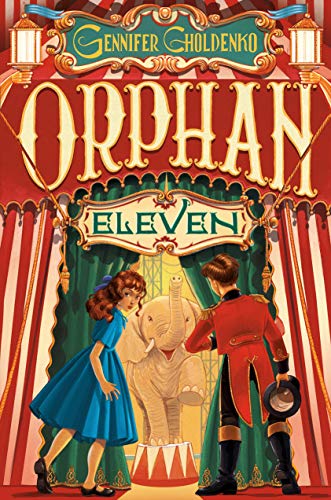Orphan Eleven
Eleven-year-old Lucy used to talk and sing, but now she refuses to open her mouth, and none of her friends at the Home for Friendless Orphans knows why. Abused and belittled by the orphanage’s cruel matron, Lucy and three friends run away and are taken in by a traveling circus, where they each receive an opportunity to earn an apprenticeship. Lucy quickly falls in love with the show’s two elephants, but her refusal to speak—and consequent inability to shout for help if there’s an accident—jeopardizes her place with the circus. Lucy must find her voice and hold on to her position long enough to reach Chicago, where she hopes to find her older sister.
Taking place over the course of a week in April 1939, Orphan Eleven is a beautiful tale of friendship, sisterhood, and the eccentricities of traveling circuses in the late 1930s. The supporting characters, including a little person named Jabo and a fellow orphan nicknamed “Bald Doris” for the unfortunate haircut she received at the orphanage when she caught lice, are as colorful and complex as Lucy herself. And, of course, elephants are always an excellent addition to a story. Newbery Honor-winner Choldenko deftly unspools both the cause of Lucy’s selective mutism and her family history slowly over the course of the book. Both are revealed in their entirety in the climax of the story, which keeps readers waiting on tenterhooks to see if Lucy will find her sister or be recaptured by the cruel orphanage matron.
Intended for a middle-grade audience, this fast-paced delight will find fans of all ages. Highly recommended.










